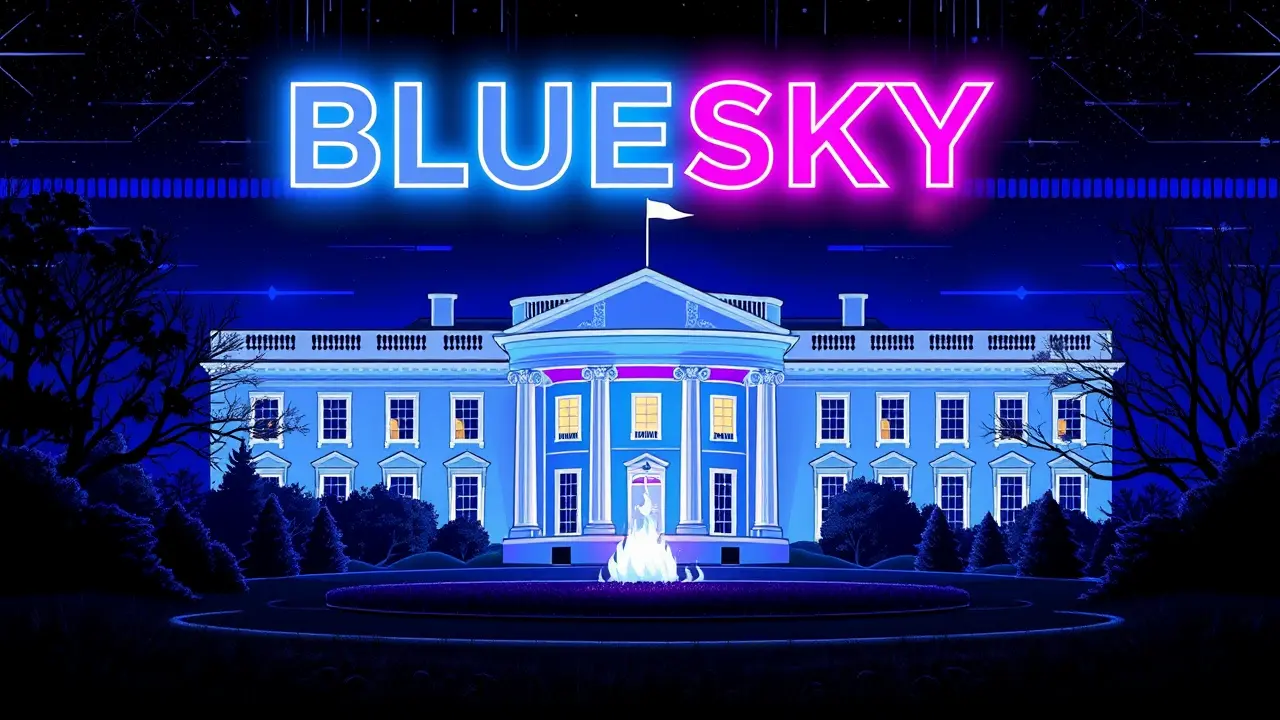White House Joins Bluesky, Quickly Becomes Blocked
In a stunning political maneuver that feels ripped straight from a high-stakes campaign war room, the Trump administration has stormed the nascent social media platform Bluesky, only to be dramatically blocked in a move that underscores the increasingly blurred lines between governance and digital turf wars. This isn't just another platform launch; it's a strategic escalation in the perpetual political media battle, a calculated play to dominate the narrative on a platform hailed as a potential successor to a post-Elon Musk Twitter.The White House's arrival on Friday wasn't a quiet diplomatic entry; it was a shock-and-awe deployment of official accounts, from the @WhiteHouse itself to a battalion of federal agencies, signaling a deliberate pivot to capture a new, tech-savvy electorate. But the swift and decisive blocking of the account—a tactical counter-strike from an unseen opponent—reveals the raw, unfiltered chaos of modern political communication, where every digital square inch is contested territory.This is political jujitsu in the digital age: using the very tools of decentralized, ostensibly neutral communication to launch partisan broadsides, a strategy honed over years of leveraging social media to bypass traditional press gatekeepers. The immediate consequence? A meta-narrative about platform control, free speech versus moderation, and the weaponization of digital public squares.It’s a scenario that would make any seasoned campaign manager sweat—deploying a major asset only to see it neutralized before the first salvo is even fired, a humiliating retreat in the perpetual optics war. Looking at the historical playbook, this mirrors past administration forays into new media frontiers, from FDR's fireside chats to Obama's mastery of early social media, but with a crucial, Trump-era twist: the strategy is inherently confrontational, designed to provoke and polarize rather than unify.The blocking incident itself is a gift to the base, reinforcing the 'us versus them' narrative and fueling the grievance machine that powers modern populist movements. Analysts watching the polls and the digital engagement metrics in real-time will be dissecting this move for weeks, measuring its impact not in policy wins but in shares, likes, and the furious churn of the news cycle.The broader context is a political landscape where every app, every feed, every algorithm is a potential battlefield, and the White House's foray into Bluesky is less about communication and more about claiming a new hill in an endless culture war. The long-term ramifications are profound, signaling to regulators, tech giants, and the electorate that no digital space is safe from political colonization, setting a precedent that future administrations, of any stripe, will be forced to follow or aggressively counter. This is more than a social media story; it's a live-fire exercise in 21st-century political strategy, a masterclass in how modern power projects itself into the digital ether, and a stark warning that the future of political discourse will be fought not in town halls or on debate stages, but in the relentlessly competitive arena of our smartphone screens.
It’s quiet here...Start the conversation by leaving the first comment.
© 2025 Outpoll Service LTD. All rights reserved.
